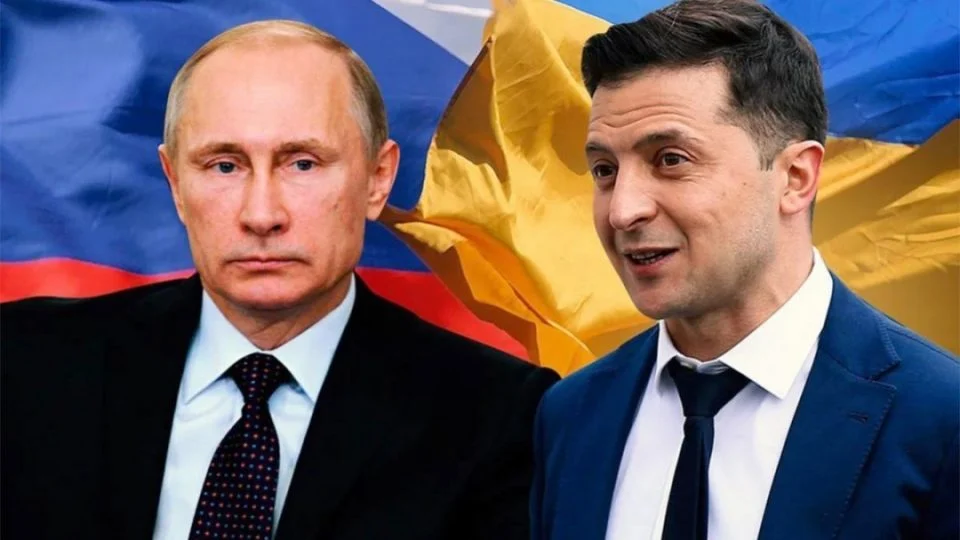Wheat and oil, are among the commodities that fuel the economies of many African countries. Wheat is the chief commodity for bread and other staple bakery-based foods. Oil powers our automobiles, and many other industrial machines and equipment used by many organizations. Russia’s invasion of Ukraine on February 24 and the resultant ongoing conflict, has proven to have far-reaching implications for many African nations, both positive and negative.

1. POSITIVE IMPLICATIONS Due to the current conflict between Russia and Ukraine, the US and its NATO allies are slamming several sanctions on Russia, hoping to punish her for its ‘unprovoked’ invasion of Ukraine with the aim of crippling its economic activities. By doing this, the US and its allies hope that this will force Russia to back down and withdraw her forces from Ukraine. With the ongoing sanctions on Russia and the blockade of Ukraine by Russian forces, little economic activities is ongoing in the two countries. What this means is that former trade partners of Russia and Ukraine will seek partnership elsewhere. For instance, Europe, which depended on Russia for its natural gas supply may now look towards African countries for its energy needs as indicated below:
1. Tanzania According a report by Brooking Institute, Tanzania’s president, Samia Suluhu Hassan, stated in an interview on the sidelines of the European Union (EU), African Union (AU), summit in midFebruary that the tensions in Ukraine are generating growing interest in the country’s gas reserves, which is the sixth-largest in Africa. The report noted that Hassan is in negotiations with energy companies, in the hopes of attracting $30 billion in foreign investment, to revive construction of offshore liquefied natural gas projects in 2023.
2. Senegal Production is expected to start later this year in Senegal, where 40 trillion cubic feet of natural gas was discovered between 2014 and 2017. The country may well be positioning to benefit from the international sanctions on Russian aggression in Ukraine, by becoming an alternative exporter of natural gas to Europe.
3. Nigeria Nigeria, already a supplier of liquefied natural gas (LNG), to several European countries, is also embarking with Niger and Algeria on the Trans-Saharan Gas Pipeline, to increase exports of natural gas to European markets. On February 16, the three countries signed an agreement to develop the pipeline, estimated to cost $13 billion. Europe is likely to be a key financier, bolstered by the EU’s controversial decision in early February, to label investments in natural gas as “green” energy.
4. South Africa South Africa is the world’s second biggest producer of palladium, a critical input into automobiles and electronics. This means that with the continued international sanctions on Russia, South African could experience growing demand for palladium. South Africa as a major exporter of gold, has experienced increased strengthening of its currency the Rand, as a result of rising global prices for the precious metal.
2. NEGATIVE IMPLICATIONS
1. Increase in cost of fuel and food
The increase in natural gas and oil prices, adversely affect African countries that depend on importation of oil. This will mean additional cost for African countries heavily dependent on oil and natural gas, in agricultural and industrial production. Again, since African bakery industry depend heavily on wheat, which is largely imported from Russia and Ukraine, the prices of such staple foods like breads and other bakery products is likely to spike.
2. Education There are many students of African descent, who are currently studying in Russia and Ukraine. More than 8,000 Moroccans and 4,000 Nigerians are studying in Ukraine. These students are currently cut between the crossfire of Russia-Ukraine war, with many trapped in war-torn Ukraine. If reports made in various media about Ukraine’s treatment of people of African descent with discrimination, in terms of evacuating people from the war ravaged country is anything to go by, many Africans will certainly think twice before continuing with their educational relationship with Ukraine. This will adversely impact both parties’ in their future academic endeavours.
3. Russia’s Role in Trade, aid, military training and paramilitary security Russia and Ukraine control 25% of the world grain supply, especially wheat. Also, through its subsidiary, the Wagner Group, Russia operates in many African countries including Central African Republic, Libya, Mozambique and Mali. Russia also maintains strong trade relations with key African economies, such as South Africa, Egypt, Nigeria and Sudan. Again, Russia is an important ally of many African countries for military and paramilitary training. These bilateral relationships is currently threatened by the continued war in Ukraine.
4. Separatist Agitations It is strongly believed in some quarters that Russia’s recognition of the separatist region of Ukraine, would bring light to similar agitations by separatist entities in Nigeria, such as Biafra and Oduduwa separatist movements. Again, such violent bodies like Boko Haram, and its local and international collaborators that have been running over villages, occupying them and even hoisting their flags, and collecting taxes from traders and residents of some of the northern states in Nigeria, will perceive the move by Russia in Ukraine as a tonic for their continued acts of criminal brigandage